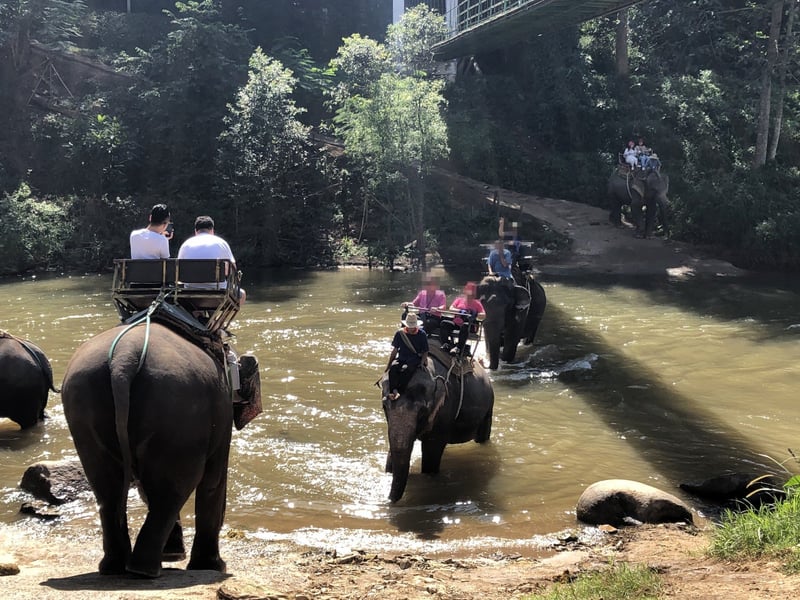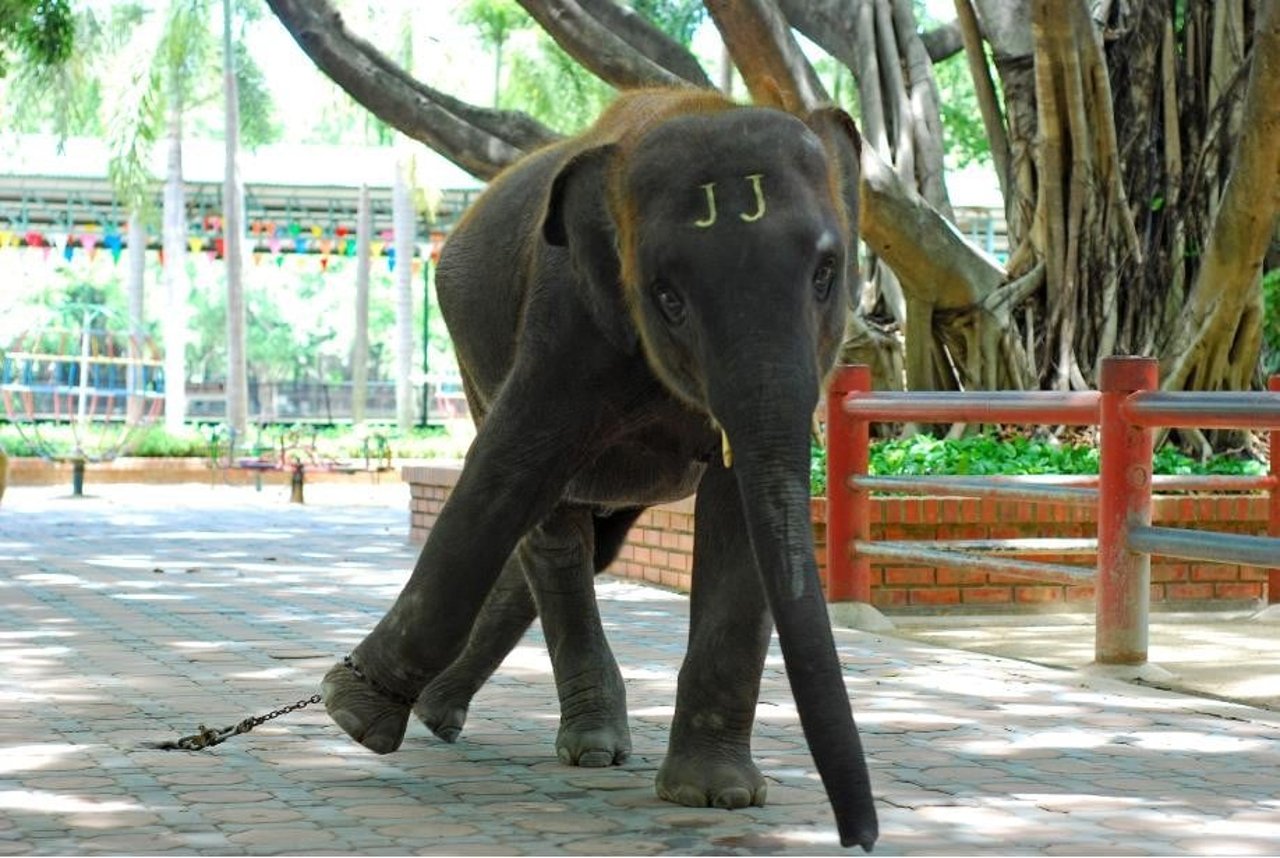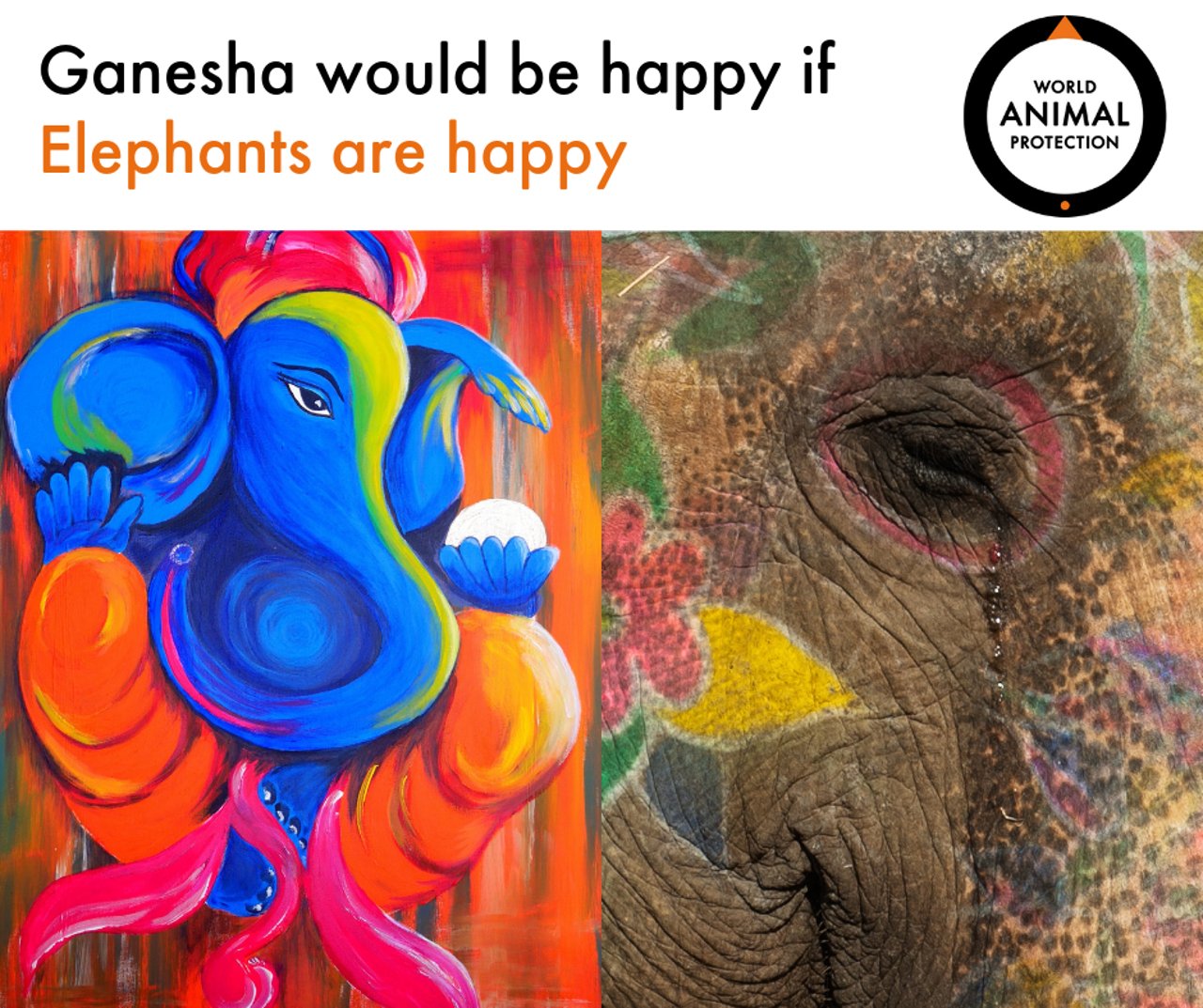
My nose buried deep into the pages of a book is how I often like spending my time, and more so if the book spins a captivating and real narrative about the Elephants, much like Lawrence Anthony’s critically acclaimed, Elephant Whisperer.
The sole message of Humane Treatment
While thumbing through the pages of this book, I came across this excerpt about our perception of the wild stating, “But perhaps the most important lesson I learned is that there are no walls between humans and the elephants except those that we put up ourselves, and that until we allow not only elephants but all living creatures their place in the sun, we can never be whole ourselves.” — a mere poetry of words advocating the sole message of humane treatment of elephants (and other wildlife), urging its readers to look at these innocent, calm and highly intelligent beings for who they truly are as opposed to constantly viewing them as wild threats or objects sustaining our frivolity.
A planet shared among millions of diverse species, the Homo sapiens merely occupy a small sliver of the biodiversity spectrum - 0.01% in terms of biomass, and are crowned as the most influential, capable and forward-thinking species as indicated by evolution and ontogeny.
We humans are an integral part of the animal kingdom, yet we have always elected to view ourselves as different from the other animals and even better than most. We call ourselves the most independent and evolved members of the animal kingdom, and stemming from this very god complex we often fall into the cycle of seeking a pleasurable life, often at the cost of being inhumanely cruel to animals and in this case, elephants.
Self-centered humans
Elephant cruelty is an omnipresent aspect observed across various sectors such as tourism transportation, and even entertainment. These sentient beings that occupy an immense cultural and theological gravitas in our society and are even worshipped across many states and sects face an ironic fate, often witnessing the harshest realities of humanity.
Picturesque places and attractive tourists’ location with exotic elephant rides and safaris that might have made some exquisite and memorable parts of our memories, unfortunately, have given these very elephants an equal amount of suffrage if not more.
These well-kept secrets of these industries and the public being oblivious to the pain of these voiceless animals, decades have passed without any reforms or policies that put a ban on these fiendish and heinous practices under the guise of eco-tourism, cultural appropriation or even religious practices.
“The only good cage is an empty cage” – Lawrence Anthony
Taking the internet by storm with cute baby elephant videos, elephants painting a canvas with paints or even exotic elephant rides in tourist destinations hide a decrepit reality that, if uncovered is sure to leave you shaken to the bone with the levels of heinous and barbaric tortures tactics in the name of domestication.
Behind the fun and frolic that the tourism industry promotes and promises, there lie several sordid stories of beastly inhumanity where baby elephants are often captured from the wild by trapping them in pit traps and cruelly separating them from their mothers, who if act out to save the young ones either get brutally beaten or even shot.
Once the baby elephants are gathered, they are then sent to centers where they undergo a process called ‘crushing’ which unfortunately exactly what it sounds like— brutally barbaric and abominable to the very core.
‘Crushing’ or colloquially known as ‘phajaan’ across Thailand and Myanmar, is a known training method undertaking corporal punishment of these animals in order to tame them wherein they are tied and trapped in restrictive cages for days on end, ruthlessly beaten up and forced to respond to commands.
Reports from various organizations such as the United Nations and National Geographic have even reported the use of nails, stakes and cables as negative reinforcements being used to bruise these docile creatures; all for a continued tourist influx and steady profits. With these malpractices now being given the desired public and media attention and criticism, are now being rapidly targeted by conservationists and animal rights advocates to be completely banned.
Furthermore, various sanctuaries for the rehabilitation of these innocent souls have also recently emerged akin to a faint light at the end of a dark tunnel.
Advocacy, Action & Awareness
Elephants have made quite a presence not only in the wild but also across various genres in life. From popular movies and wildlife documentaries like ‘The Elephant Queen’ and quintessential tales in cult classics like ‘Haathi Mera Saathi’, to Appu the elephant being the Indian Railway mascot or even their theological presence as Airavata or even the mighty Lord Ganesha, elephants despite being an integral part of our country’s and society’s fiber yet are treated with horrifying oppression and painfully difficult lives, shackled to whims of a species craving epicureanism with a dwindling sense of morality.
Furthermore, callous and biased reporting of human-wildlife conflicts in elephant dominated regions further fuels the animosity between humans and wildlife, doing nothing but misconstruing these innocent, sentient beings as savages of the wild, well deserving the cruelty.
With the ease of technology and its advancements, various clips from different temples across the country have witnessed the horrific and absolutely revolting ways in which the fostered elephants are tortured which makes one think — are humans the sole beings who retain the prerogative of justice and humane treatment?
Towards A Dawn of Change
World Animal Protection’s exhaustive campaign to end elephant cruelty has led to some astounding discoveries and groundbreaking results.
Over 160 travel companies such as TripAdvisor for instance have committed to stop selling tickets to venues or promoting places that promote activities that elephant riding, or safaris or even circuses.
As per research, countries such as Thailand, Myanmar, Vietnam and even India have tourism industries principally dependent on domestication of elephants further indicating the sheer number of elephants that are subjected to the cruel and heinous ‘crushing’ method. Furthermore, an increase in smuggling and trafficking of these animals across borders has resulted in a huge blow to the indigenous loss of wildlife and thus, active measures are the need of the hour to protect these incredibly intelligent and endangered animals from cruel manhandling and torturous lives.
For more details of the Volunteer ( Swagatama Mukherjee):
Facebook: https://www.facebook.com/swagatama.mukherjee/
Instagram: https://www.instagram.com/abufferingbrain/
Linkedin: https://www.linkedin.com/in/swagatama-mukherjee-7a1802149/
Twitter: https://twitter.com/SamMukherjee247
Please Note: The views expressed by the author do not necessarily represent those of World Animal Protection.
About the Volunteer: With a love for Ecological sciences and scientific journalism, Swagatama Mukherjee is a postgraduate student in Microbiology and also a bibliophile with a penchant for fine arts and Graphic design.

